Emeritus status
Emeritus status is the highest recognition Université Laval confers on faculty members.
2017
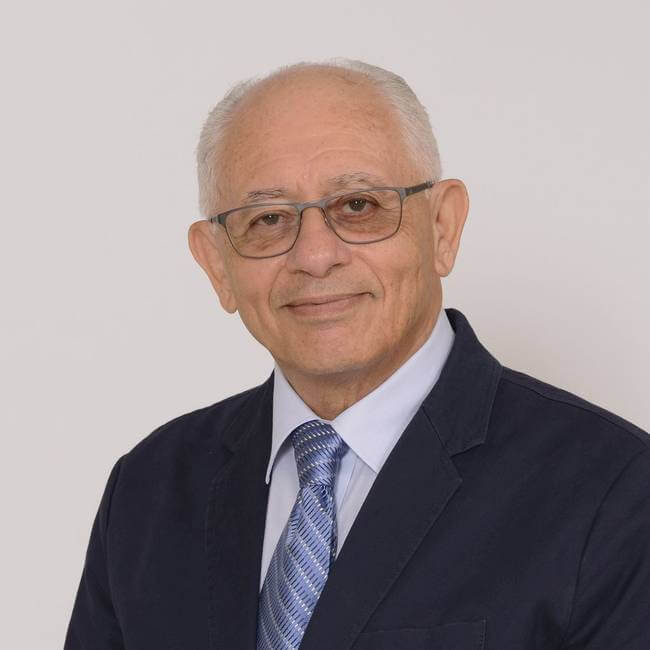
Hani Antoun
Professor Emeritus
Learn more
Hani Antoun is nationally and internationally recognized as a leading expert in the field of soil microbiology. Mindful of delivering a top-notch education, he equipped his laboratory with state-of-the-art scientific equipment through a series of research grants obtained on his own and as part of a team. Basic research carried out by Professor Antoun led to the development of new biofertilizers to satisfy the phosphorus needs of plants. In 2013 he was awarded the Auguste Scott honorary award by Association québécoise de spécialistes en sciences du sol in recognition of his outstanding achievements and important contributions to the advancement of soil science in Québec.
A long, rich career
Professor Antoun was hired at Université Laval in 1980 and devoted his subsequent 34-year career to promoting education and research in the field of soil microbiology, and specifically the study of beneficial plant-soil-microbe interactions. He played a key role in developing the graduate programs in agricultural microbiology, and was program director from 1989 to 2007. He was a member of the board of the Faculty of Graduate and Postdoctoral Studies from 1996 to 1999 and chair of the Soil and Agri-Food Engineering Department from 2007 to 2011. In the classroom, Professor Antoun developed high-quality teaching materials and gave lectures at the undergraduate and graduate levels. His approach was that soil is a living organism and that beneficial soil microbes can be used to develop biofertilizers necessary for organic crop production with a view toward sustainability. His lectures also addressed ways to reduce the environmental impact of traditional farming by manipulating the microorganisms responsible for producing greenhouse gases and those that improve the physical and biochemical properties of the soil.
Professor Antoun received NSERC’s individual Discovery Grant every year from 1980 to 2018 for the originality, creativity, and innovation of his research programs, his outstanding achievements, and his efforts toward educating highly qualified professionals. While at Université Laval, he supervised 67 graduate students as research director or co-director. His former graduate students now hold senior positions in research and development and education in industry, government, and academia.
Mr. Antoun was a professor and guest lecturer at quite a few universities and conferences in Canada and abroad. He has written 121 scientific articles and book chapters, and presented 150 scientific papers. He also chaired the organizing committees of international conferences held in Québec City. Dedicated and passionate about his work, he did much to expand Université Laval’s influence and Québec’s visibility in his field of expertise during his career.
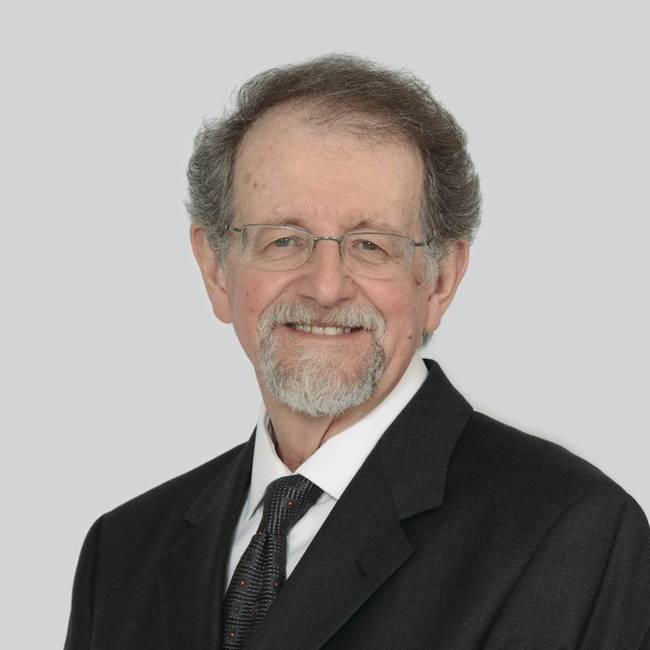
Jacques Brisson
Professor Emeritus
Learn more
Jacques Brisson is a pioneer in population health research in Québec City. After studying medicine at Université Laval, he completed a master’s and a PhD in epidemiology at Harvard University. Mr. Brisson was hired as an adjunct professor of epidemiology in 1980 and promoted to associate professor in 1987 and then to full professor in 1992, finally retiring in 2016. Over the course of his career, he supervised or co-supervised more than 40 graduate students, including those in the first cohort of PhD students in epidemiology. He was director of the epidemiology research unit in the Department of Social and Preventive Medicine and director of the master’s and PhD programs in epidemiology. His unwavering commitment to Université Laval’s academic programs helped elevate the institution’s reputation through his leadership in the fields of epidemiological research methods and breast cancer epidemiology.
A great scientific mind
Mr. Brisson had a very productive 36-year career in research at Université Laval, mainly in the fight against cancer, for which he received the Diamond Research - Career Award from CHU de Québec-Université Laval in 2017. Recognized as one of Canada’s leading experts in breast cancer epidemiology, he has published 141 articles and 28 reports. He contributed to the development of the Québec Breast Cancer Screening Program (PQDCS) and was the scientific lead on its evaluation. Mr. Brisson was involved in research related to the evaluation of oncology treatment in Québec and Canada as well.
Mr. Brisson chaired a number of committees during his career. Specifically, at the Medical Research Council, he chaired the first committee to evaluate population health grant applications and, at the National Cancer Institute of Canada, the first committee to evaluate psychosocial research grant applications. He helped create the epidemiology research group at Université Laval in the early 1990s and the population health research unit in 2001. From 1990 to 2000, Mr. Brisson took the lead on developing a tumour file and a program in epidemiology and biostatistics as part of a project establishing a network of four oncology units in hospitals affiliated with the Norman Bethune College of Medicine in China. He contributed to the work of numerous institutions between 1982 and 2015, including the U.S. National Cancer Institute’s International Cancer Screening Network, the Canadian Partnership Against Cancer, the Canadian Institutes of Health Research (CIHR), the Medical Research Council (MRC), the National Cancer Institute of Canada (NCIC), Institut national de santé publique du Québec (INSPQ), Fonds de recherche du Québec – Santé (FRQS), and Programme national de recherche et de développement en matière de santé (PNRDS). Mr. Brisson’s has been an exceptional career with a lasting impact on the community.

André Couture
Professor Emeritus
Learn more
André Couture is an internationally recognized specialist in Hinduism and Sanskrit language and literature, specifically traditions and texts related to the Hindu god Krishna. He played a key role in developing the curriculum and structure of Université Laval’s religious studies programs by introducing regular lectures on the major religions, including Hinduism and Buddhism, and by creating the first Sanskrit language courses, which he continues to teach as an adjunct professor.
A committed teacher
Professor Couture earned a bachelor’s degree in theology from Université Laval in 1969 and continued his studies in Paris, matriculating first with a degree from École pratique des hautes études in 1974 and then a PhD in religious studies from Paris-Sorbonne University in 1977. After holding various teaching positions, he was hired as an adjunct professor at Université Laval in 1986. He became an associate professor in 1990 before being promoted to full professor in 1998 and retiring in 2015. During his time at Université Laval, he supervised 14 master’s theses and four doctoral dissertations and oversaw two postgraduate fellows. Professor Couture created and directed Centre de ressources et d’observation de l’innovation religieuse (CROIR) and served as director of the certificate programs in religion, the master’s degree in human religious studies, and the joint PhD (UQAM and Concordia University) in religion. He also held positions with the Canadian Society for the Study of Religion and the Canadian Corporation for Studies in Religion, and is a member of Société asiatique de Paris and the International Association of Sanskrit Studies.
International recognition
Professor Couture was awarded a number of grants over the course of his career for his ongoing high-level research efforts. The value and significance of his work has been widely recognized by top international specialists in his field. In 2009 he was appointed foreign correspondent to Institut de France (Académie des inscriptions et belles-lettres). Some 30 of his articles were published in India in 2015 and 2017, 12 of which were translated from the French. Professor Couture participated in a great many scientific conferences in Canada and abroad over the course of his career. He has published 13 monographs, nearly 50 chapters or sections of collective works, and 42 articles in peer-reviewed scientific journals in Québec, Canada, and abroad. He has been published in prestigious journals, including Journal asiatique in 2013 and Journal des savants (the oldest scientific journal in the world) in 2017. Professor Pierre-Sylvain Filliozat, one of the world’s greatest experts on Hinduism, praised Professor Couture before Académie des inscriptions et belles-lettres in Paris in 2017.
Over the course of his brilliant teaching and research career, Professor Couture did much to ensure Université Laval’s prominent place in the study of Asian religions.
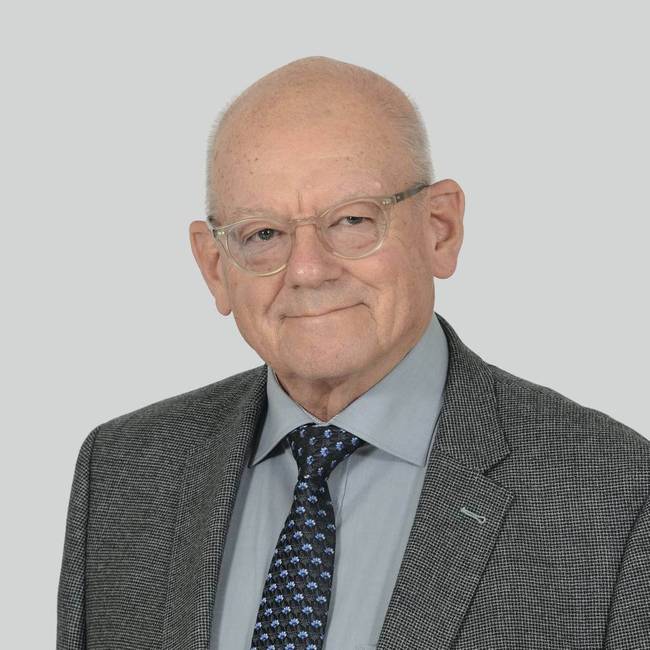
Julian J. Dodson
Professor Emeritus
Learn more
Julian Dodson’s innovative work in the fields of evolutionary ecology and the ecological dynamics of the estuarine transition zone is widely respected within the scientific community. The founder of Centre interuniversitaire de recherche sur le saumon atlantique (CIRSA), he built an international reputation by introducing the concept of applying molecular genetics to ecological issues.
Multifaceted engagement
Professor Dodson worked at Université Laval for 34 years, including as a full professor from 1985 to 2014. He taught eight different courses at the undergraduate and graduate levels and supervised 72 graduate students. He was chair of the Biology Department from 2001 to 2005 and chair of the steering committee for the CIRSA fund of Fondation de l’Université Laval. He was also a member of the steering and scientific committees of Université Laval’s Institut Hydro-Québec en environnement, développement et société from 2005 to 2007.
Professor Dodson’s dedication to teaching and research was evident from the beginning of his career. He was awarded $7 million in individual grants over the years. He made significant contributions to 311 scientific publications, including 195 peer-reviewed publications, 58 data reports, and 31 conference proceedings. His research on tracking the migration of American eels from the Canadian coast to the Sargasso Sea was named one of the top ten scientific discoveries of 2016 by Québec Science magazine. He was also invited to participate on numerous scientific advisory, editorial, evaluation, and management committees in Québec, Canada, and abroad.
International renown
Professor Dodson has been an active member of many research groups, including Groupe interinstitutionnel de recherches océanographiques du Québec (Québec-Océan) since 1978. He held various positions at Centre interuniversitaire de recherche sur le saumon atlantique since its inception. His valuable contributions to the conservation of Atlantic salmon and the protection of wildlife and habitats have been recognized internationally on several occasions.
According to Google Scholar, Professor Dodson has been cited more than 9,000 times. According to the index published by ResearchGate, the quality and quantity of his individual scientific research is higher than that of 97.5% of the 11 million member scientists in 192 countries. He presented at conferences in North America, Europe, and Asia, and was a visiting professor and researcher at international universities.
Throughout his highly distinguished career, Professor Dodson stood out for his exemplary involvement in teaching and research. We thank him for sharing his considerable talent and dedication!

Claude Dubé
Professor Emeritus
Learn more
Claude Dubé joined Université Laval as a professor in 1978 but also held important administrative positions over the years—for example, as dean of the faculty now known as the Faculty of Planning, Architecture, Art, and Design for 13 years. He also developed a number of programs for mixed groups, cementing his reputation as an innovative educator. In 1981 he succeeded in getting the master’s degree in Land Use Planning and Regional Development officially recognized by Ordre des urbanistes du Québec.
Regional development
As faculty dean, Professor Dubé created and launched the Percé International Summer School, a unique opportunity for Université Laval to celebrate the heritage of the Gaspé Peninsula and contribute to the region’s development. During the same period, he was actively involved in creating the Multifaculty Chair in Research and Development for Gaspésie and Îles-de-la-Madeleine, whose executive committee he chaired for many years. Professor Dubé was also appointed holder of the UNESCO Chair in Cultural Heritage. In addition to cofounding Société du patrimoine urbain de Québec in 1993 and Fondation Rues Principales in 1997, he created a program to train cultural development officers for the Villes et villages d’art et de patrimoine (VVAP) network in 1998. In 1994 he became the first executive director of Économusée, a network that showcases artisans and their trades in workshops open to the public. Developed in Québec, this network of some 100 businesses is now in eight Canadian provinces and seven northern European countries.
In addition to regular teaching, Professor Dubé supervised 144 master’s students on their essay or thesis and 19 undergraduates on an architecture project. For 10 years he headed up Université Laval’s downtown revitalization program, which trained more than 1,000 people from 170 different communities across Québec as well as local stakeholders.
Raising the bar
Mr. Dubé authored 65 publications and actively participated in 39 seminars, conferences, and presentations. He chairs and supervises the research of Université Laval’s planning board, and did the same for the planning and implementation committee from 2003 to 2010. He served on a number of committees and boards of directors throughout his career. In 2003 he received the Hans Blumenfeld Award, which has recognized 20 urban planners since 1963 for outstanding contributions to developing and expanding the profession in Québec. In 2011 Professor Dubé was named an urban planner emeritus for his professional competence, great integrity, remarkable achievements in the field of planning and urban development, exceptional community service, and everything he has done to grow his profession in Québec.
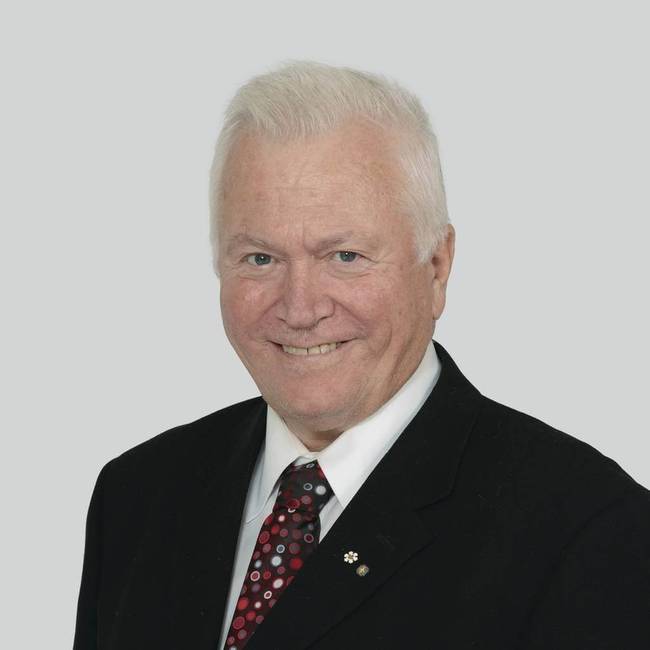
Michel Gervais
Professor Emeritus
Learn more
Throughout his career, Michel Gervais was deeply committed to education, health, culture, social and economic development, and philanthropy. As executive director of Centre hospitalier Robert-Giffard and Centre de recherche Université Laval – Robert-Giffard, he was instrumental in improving the delivery of specialized and subspecialized care within an integrated mental health services network, making remarkable advancements in neuroscience research, and getting the hospital centre recognized as a university institute in mental health.
Climbing the ladder at Université Laval
Professor Gervais was hired in 1968 as a professor in the faculty now known as the Faculty of Theology and Religious Studies, and his skills and achievements led to administrative positions of increasing responsibility over the years. In 1979 he became full professor and head of the Laval Project, a concrete effort to follow up on the report from Université Laval’s future study commission. In 1982 he was appointed vice rector of teaching and research, and in 1987 he was elected rector, a position he held for two consecutive terms.
Professor Gervais taught systematic theology at the undergraduate and graduate levels, supervised theses and dissertations, and oversaw advanced studies in the Faculty of Theology. During his term as vice rector of teaching and research, he fostered higher-quality education and promoted advanced studies and research, while pursuing a fundamental exploration of the evolution and challenges of higher education. As rector, Professor Gervais created an Office of the Vice Rector of Academics to improve the quality of education. He also created the Continuing Education Department and the Placement Service. Under Professor Gervais’s leadership, Université Laval was ranked 6th in Canada for research funding. He supported the creation of a board of directors with strong representation from the social community.
Professor Gervais chaired Conférence des recteurs et des principaux des universités du Québec (CREPUQ), the Association of Universities and Colleges of Canada (AUCC), and Association des universités partiellement ou entièrement de langue française (AUPELF), which became Agence universitaire de la Francophonie (AUF).
Honours and awards
In terms of research, Professor Gervais published quite a few pieces aimed at both the scientific community and the general public. He received honorary doctorates from Bishop’s University, McGill University, the University of Manitoba, and Université de Montréal, and was made an officer of the National Order of Merit (France), the Order of Canada, and the National Order of Québec.
Professor Gervais chaired Association québécoise d’établissements de santé et de services sociaux (AQUESS) and Société du réseau des économusées. As a retiree, he is still a member of the strategic council of Saint Joseph University of Beirut and continues to share his vast experience with various organizations. His outstanding achievements speak for themselves.
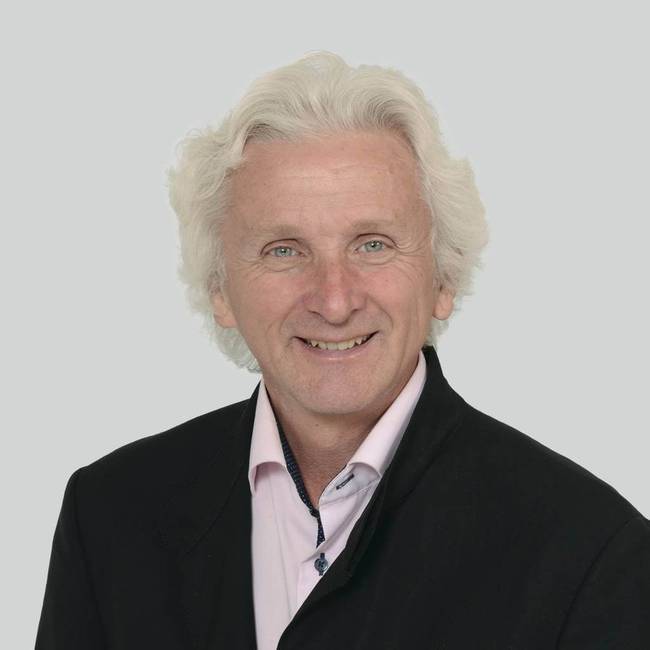
André Gosselin
Professor Emeritus
Learn more
A horticulturist, agronomist, professor, and entrepreneur, André Gosselin has made remarkable contributions to education and research in the field of horticulture in Québec. He cofounded Les Fraises de l’île d’Orléans, Les Serres du Saint-Laurent (Savoura brand), the Horticulture Research Centre (CRH), the Envirotron building at Université Laval, the Institute of Nutrition and Functional Foods (INAF), and Nutra Canada. These successful ventures and productive university research units have led to the creation of more than 1,000 jobs in Québec.
The father of Guillaume, Jeanne, and David and spouse of Linda Gaudreau, Professor Gosselin was raised on a vegetable farm in Saint-Laurent-de-l’Île-d’Orléans. He attended the University of Guelph and Université Laval, where he completed a bachelor’s degree in bioagronomy (1979). After training at the University of California, he completed a PhD in plant biology at Université Laval (1983) under the supervision of Mr. Marc J. Trudel.
A renowned expert
Professor Gosselin joined the Université Laval staff in 1984 and was appointed full professor in 1994, a position he held until his retirement in 2016. He was the first director of the Horticulture Research Centre (CRH), director of the Plant Science Department, and dean of the Faculty of Agriculture and Food Sciences. During his career at Université Laval, Professor Gosselin supervised or co-supervised the work of more than 100 graduate and postgraduate research students, and he and his team published more than 500 scientific articles and papers. His work at CRH and INAF helped boost Université Laval’s influence in the horticulture and agri-food sectors, both in Québec and internationally.
National and international leadership
Professor Gosselin’s scientific research, conducted as part of multidisciplinary public-private partnerships, has found a number of applications: developing Québec’s electricity to allow the greenhouse cultivation of vegetables during the winter, using Québec’s peatland biomass for the hydroponic production of berries, and creating new genetic strains of strawberries and raspberries rich in antioxidants. This research has led to the development of multiple organic ingredients whose positive effects on blood glucose management, memory, and urinary tract infection prevention have been demonstrated in clinical studies. Professor Gosselin’s research has also contributed to improvements in the production of vaccines using plant biotechnology. Finally, his findings have fostered the use of environmentally friendly technologies such as composting, recycling, and biopesticides.
During his career, Professor Gosselin received a number of awards and recognitions, including the title of Commander of the Order of Agricultural Merit, the Prix Lionel-Boulet (Prix du Québec), the title of Grand Diplômé of Université Laval, the title of Fellow of the American Society for Horticultural Science, and, recently, the title of Knight of the National Order of Québec. Professor Gosselin also supports Centraide, Moisson Québec, Les Diabétiques de Québec, Fondation de l’Université Laval, Parc maritime de Saint-Laurent, Éducaide, and other charitable organizations. A truly impressive career as an educator and researcher!
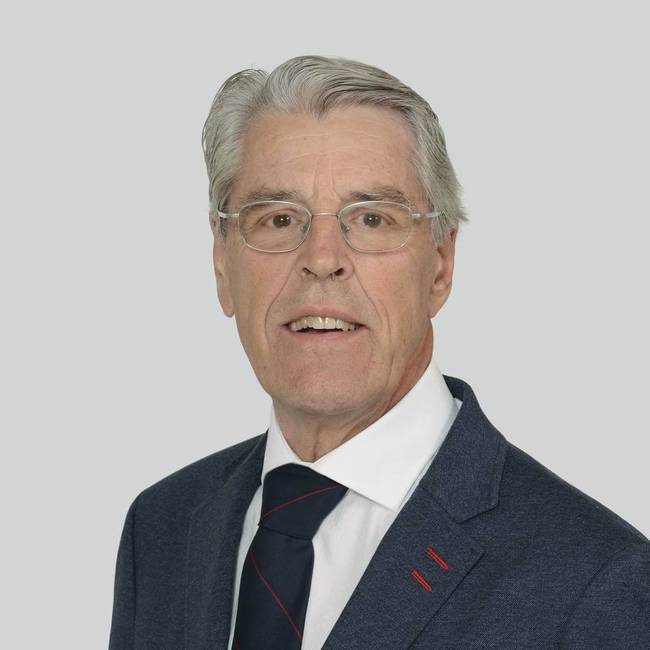
Serge Langlois
Professor Emeritus
Learn more
Serge Langlois is recognized by his peers as a national expert in high blood pressure and dialysis who has made major contributions to university education. Mr. Langlois graduated from Université Laval with a degree in medicine in 1972 and completed his residency in internal medicine in 1977. He then completed residencies at McGill University—in nephrology in 1979 and clinical pharmacology in 1980. He was appointed as a lecturer at Université Laval in 1981, rising through the ranks to adjunct clinical professor in 1985, associate clinical professor in 1990, associate regular professor in 1992, and full professor in 2003, a position he held until his retirement in 2015.
Knowledge sharing
Mr. Langlois was deeply involved in teaching, pedagogy, research, and management throughout his career at Université Laval. He taught general nephrology, pharmacology, hypertension, and dialysis at the undergraduate and postgraduate levels. As an undergraduate professor upon completing his postgraduate training, he was given responsibility in 1985 for the integrated course Système urinaire et milieu intérieur, which he taught until 2014. In 1992 he started the drug therapy workshops and modules that are still part of the clerkship program.
Mr. Langlois had a hand in shaping the skills of almost every doctor who came through Université Laval during the years he taught there, meaning he helped train more than a generation of new physicians. He was also actively involved in the dissemination of knowledge and in raising awareness about kidney failure. He organized three Québec forums on pre-dialysis to highlight the importance of multidisciplinary follow-up care.
In collaboration with the Faculty of Nursing, Mr. Langlois started a program for nephrology nurse practitioners, teaching and supervising the first cohort.
Scientific career
Mr. Langlois also left his mark in research, his deep commitment to which deserves recognition. He co-authored 40 scientific articles and collaborated on various clinical trials. His research activities raised his professional profile from the regional to the provincial and then national levels. He has written five book chapters and a number of therapeutic guides.
Mr. Langlois was involved in administration on- and off-campus, and served on a number of provincial and national committees in nephrology and hypertension, including the clerkship committee, the Canadian Society of Nephrology, Société québécoise de néphrologie, Hypertension Canada, and Société québécoise d’hypertension artérielle. He also participated in the development of provincial and national standards of practice in dialysis care organization and high blood pressure. He took the lead in organizing peritoneal dialysis services at the Rimouski Regional Hospital Centre and getting hemodialysis and peritoneal dialysis established at the Hôtel-Dieu de Lévis Hospital Centre. Finally, Mr. Langlois served as a government advisor on drug use. A committed expert and an example to follow for future generations.
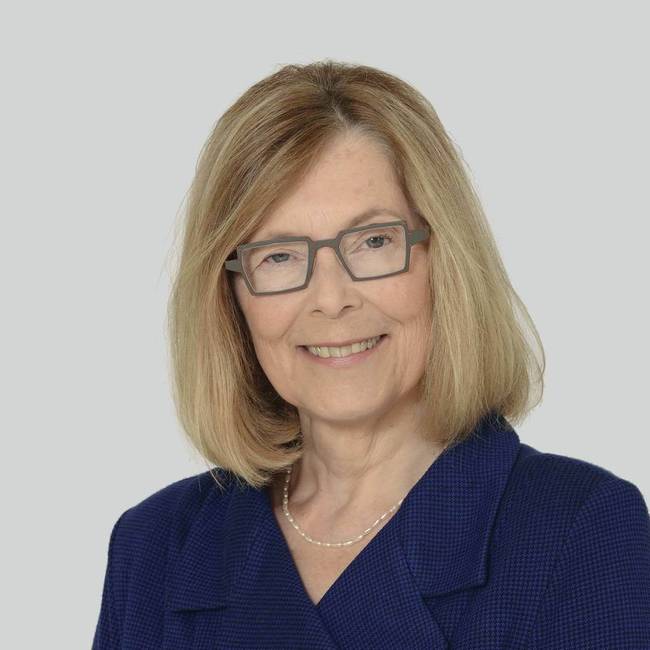
Francine Lavoie
Professor Emerita
Learn more
An internationally recognized expert in her field, Francine Lavoie was the first researcher in Québec to examine violence prevention in relationships among young people. She was also the first woman to join the faculty of the School of Psychology in 1979 as an assistant professor in community psychology. She was promoted to adjunct professor in 1981, before becoming an associate professor in 1984 and a full professor in 1988. Until her retirement in 2016, she made outstanding contributions to developing and promoting the School of Psychology.
Collaboration and sharing
Throughout her career, Francine Lavoie was very involved in the education and supervision of Université Laval students. In addition to developing and delivering 17 different courses, she supervised 34 master’s theses, 25 professional essays, and 10 doctoral dissertations.
She and some of her peers in Ontario were pioneers in the development of community psychology in Canada. An accomplished researcher, Professor Lavoie was appointed a Fellow by the renowned American Psychological Association and the Society for Community Research and Action for the quality of her scientific work. She received 57 research grants, including 22 as principal investigator, and wrote some 100 scientific articles and 26 book chapters. She led or collaborated on the publication of 12 books and 32 research reports. Professor Lavoie has also been a copywriter and editor for scientific journals and served as an external examiner for many learned societies and journals. Internationally, she authored more than 267 scientific papers.
A pioneer in violence prevention
Professor Lavoie gained an international reputation as an expert in violence prevention, particularly in France, Belgium, and Peru. She contributed to developing two violence prevention programs that have had a tangible impact on young people. In the ViRAJ program, 14- and 15-year-olds attend workshops aimed at preventing violence in dating relationships. To date, thousands of young Quebecers have benefited from ViRAJ, and the program has received accolades, including being selected one of the top ten best illustrations of the impact of social sciences and humanities research by Fonds de recherche du Québec – Société et culture (FRQSC) in June 2013 and the Hommage aux innovations sociales award from Université Laval in 2014. ViRAJ has been cited in a number of Québec and U.S. reviews, and has been translated into English and Spanish to better meet the demands of communities of practice.
The other program, PASSAJ, is an awareness and prevention program focusing on abuse in dating relationships and sexual harassment among 16- and 17-year-olds. The main topics covered are violence and sexual assault within relationships and sexual harassment in leisure, study, and work situations. These two important initiatives and Professor Lavoie’s impressive expertise have made their mark beyond our university walls and deserve recognition.
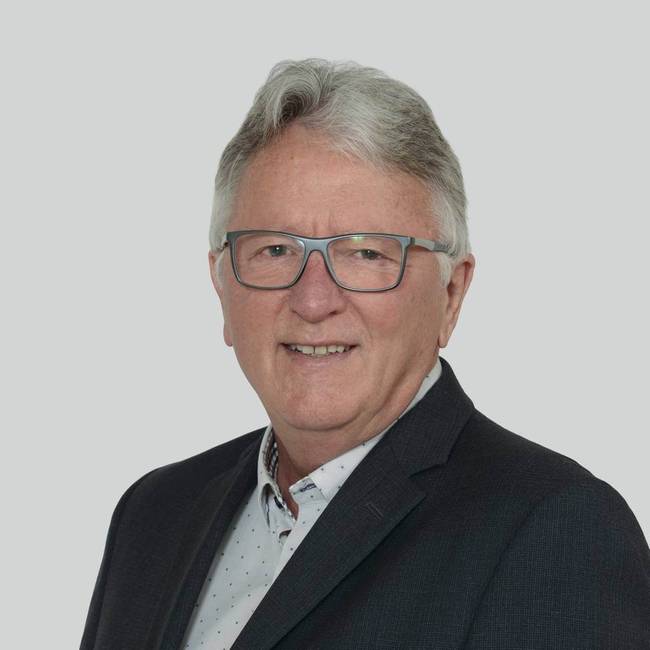
Jacques Locat
Professor Emeritus
Learn more
Jacques Locat is an internationally renowned scientist in the field of natural hazards. He has been a proud ambassador over the course of his 35-year career at Université Laval. Mr. Locat was promoted to full professor in 1990 and retired in 2016. During that time, he contributed to the creation of new undergraduate and graduate courses: Quaternaire et analyse des terrains, Analyse et gestion des risques naturels, and Excursion en géo-ingénierie. He trained highly qualified professionals over the years, including 58 graduate students—11 of them PhD candidates.
Expertise in demand
Professor Locat’s track record outside his teaching career is equally impressive. He cofounded Laboratoire d’études sur les risques naturels (LERN), with which he is still active, and has been a member of Québec-Océan since 2003. From 2005 to 2009, he was director of UNESCO’s international geoscientific cooperation program on submarine mass movements and their consequences. He was also the vice president for North America of the International Association for Engineering Geology and the Environment from 2002 to 2006, and president and vice president of the Canadian Geoscience Council from 1989 to 1993.
Professor Locat has lent his expertise to many national and international committees over the years to study landslides, underwater landslides, and soil and foundation mechanics. For instance, he worked with Norsk Hydro (SINTEF) in Norway as a submarine landslide expert for the Storegga slide and with the port authorities in Melbourne, Australia, and the European Community to evaluate marine ecosystem research programs.
Multiple recognitions
Jacques Locat’s deep commitment to research speaks for itself. He has partnered with colleagues in the U.S., Europe, and Asia. In all, he has written 118 peer-reviewed publications, 14 books or book chapters, and 11 government publications. He also carried out 18 research projects for the government and private sector, including one on the effects of the Saguenay flood on the Saguenay Fjord ecosystem.
Professor Locat’s contributions to geotechnical engineering and ground motion research have been recognized on numerous occasions. In addition to being appointed a fellow of the Engineering Institute of Canada in 1997, Professor Locat received the Thomas Roy Award from the Engineering Geology Division of the Canadian Geotechnical Society in 2003 and the A.G. Stermac Service Award from the Canadian Geotechnical Society in 2004. He has also received a number of medals: the K.Y. Lo Medal from the Engineering Institute of Canada (2005), the Robert Schuster Medal from the Canadian Geotechnical Society and the U.S. Association of Environmental & Engineering Geologists (2013), the R.F. Legget Medal from the Canadian Geotechnical Society (2015), and the Senate of Canada 150th Anniversary Medal (2018). The list of international awards to his credit and the outstanding contributions he has made to Université Laval’s geological engineering programs underscore Professor Locat’s reputation as one of the world’s great scientists.
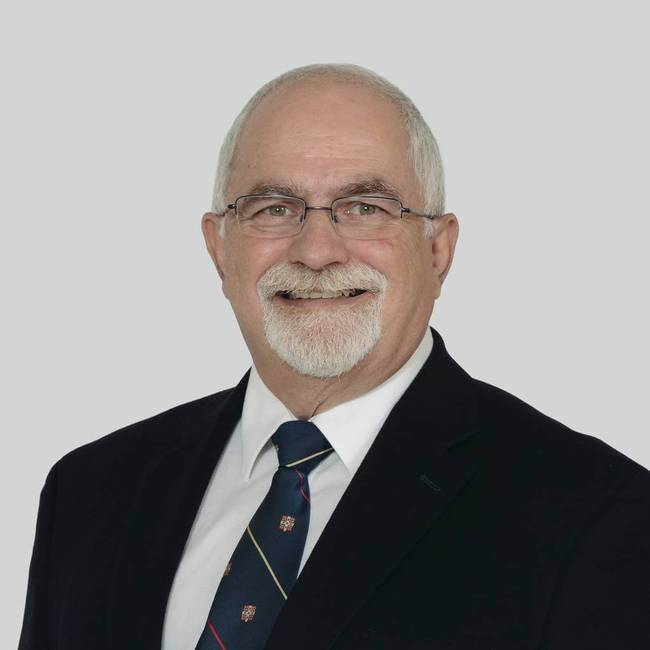
Paul Paquin
Professor Emeritus
Learn more
Paul Paquin is a visionary leader who has left his mark on the dairy and bio-food industries. Professor Paquin was hired as an adjunct professor in Université Laval’s Food Science Department in 1985 and promoted to associate professor in 1990. In 1994, he became a full professor, a position he held until his retirement in 2015.
In the early days of what would become a successful 30-year career at Université Laval, Professor Paquin worked with four other professors in the department to create the Dairy Science and Technology Research Centre (STELA), and was the centre’s first director from 1985 to 1992. STELA’s mission is to advance fundamental and applied knowledge of milk and milk products, train researchers and highly qualified professionals, and transfer technology to the dairy industry. The centre is still Canada’s largest research group in the field and its national and international reputation is now well established.
A true innovator
In 1996 Professor Paquin became the Natural Sciences and Engineering Research Council of Canada (NSERC) Industrial Research Chair for the dairy industry in Canada. His work focused on the recovery of cheese whey proteins, which until then had been considered a waste product with no real economic value. One of the results of his research was the reincorporation of these proteins into cheese production. With the technology, whey can be recovered instead of being released into the environment, and dairy manufacturers’ cheese yields have increased. The technology is now widely used by Canadian dairy companies.
Professor Paquin received international recognition for his work in the dairy sector and represented Canada as a scientific expert on a number of International Dairy Federation (IDF) committees. In 2015 he was awarded an honorary life membership in IDF Canada for his invaluable contributions to the development of the Canadian dairy industry and his participation in IDF in Canada and internationally.
In 1999, after receiving $17.3 million in funding from the Canada Foundation for Innovation (CFI), Professor Paquin became cofounding director of the Institute of Nutrition and Functional Foods (INAF). In this role, he was committed to developing a multidisciplinary culture and integrating it into food and health research programs. Today, INAF has national and international influence as a centre of expertise for research in the health food sector. In 2007 Professor Paquin created the INAF innovation support team to support biofood companies’ innovation efforts. Beyond his career in academia, he was also instrumental in launching companies such as Lactotechnologie and Advitech Solutions. Today he still chairs the board of directors of AG-Bio Centre, an incubator for agrifood and environmental companies. Now a seasoned expert, he has demonstrated unflagging commitment to his work.
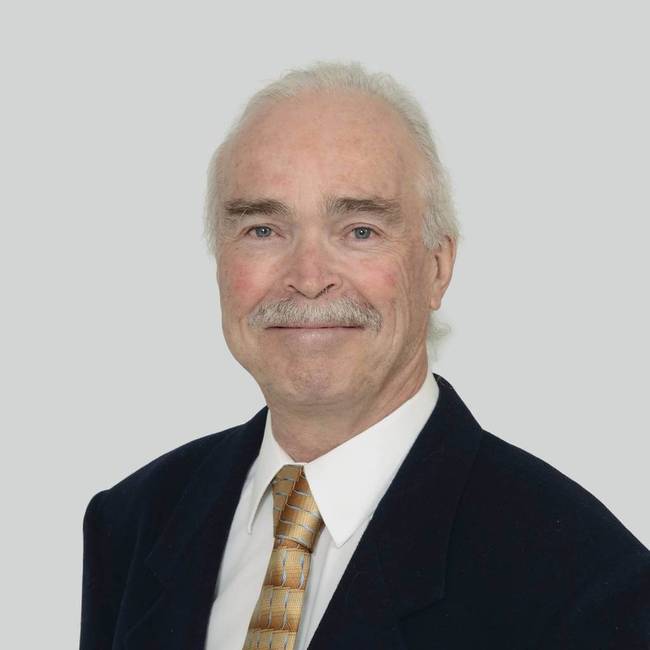
Léon-Étienne Parent
Professor Emeritus
Learn more
Léon-Étienne Parent is an innovator who has had a profound impact on agricultural science. In 1985 he began developing a forward-looking and innovative research program related to soil quality and organo-mineral fertilizers. The results of his work have shaped agronomists’ ecological vision of agriculture and supported the development of agri-environmental technology companies in Québec. The most important findings were made within a research program on phosphorus. Professor Parent’s projects on phosphorus management in rural areas have brought together multiple networks of farmers and environmental clubs as well as public and private sector stakeholders.
Professor Parent began his career as a researcher in soil fertilization and mineral nutrition for vegetable crops at Agriculture and Agri-Food Canada in 1979. He joined Université Laval in 1985, teaching courses on soil fertilization and soil-plant relationships as they relate to fertility. During his career, he developed courses for agronomists and continuing education courses in agroecosystem management. He also supervised 66 master’s students, 26 PhD students, nine postdoctoral fellows, and seven graduate trainees. He participated as an agronomist and expert from Université Laval on missions to China, Chile, India, and Brazil.
Important advances
Professor Parent’s achievements include 174 articles, books, and book chapters, 200 scientific papers, and nine patents. As the principal investigator on a research project, he obtained grants and devoted the funding to agricultural advancements and environmental protection. Nutrient balance—a concept he has been developing since 1992—has become an international standard for the mineral diagnosis of plant tissues. The agri-environmental concept of soil phosphorus saturation, which he developed in 2000 from routine laboratory analysis, is central to environmental regulations on fertilizer management across North America. In 2010 the concept was introduced in the Agricultural Operations Regulation and led to the modernization of the fertilization reference guideline issued by the Québec Reference Center for Agriculture and Agri-food (CRAAQ), helping make Québec an international leader in agri-environmental soil management. The entry and updating of Québec’s fertilizer dosage data as introduced by Professor Parent in 2005 has become the standard, supporting precision agriculture in North America. Professor Parent’s recent research on the fractal kinetics of soil carbon dynamics aims to quantify the effect of agricultural practices on carbon credits and climate change. In 1996 he received the Auguste Scott Award from Association québécoise de spécialistes en sciences du sol, and in 2016 he was appointed Commander of Ordre du mérite agronomique of Ordre des agronomes du Québec. In 2017 he became the first honorary member of CRAAQ.
Professor Parent’s projects have had a significant impact on soil, water, and air quality in various natural processes and agricultural practices. His determination and commitment are to be applauded.
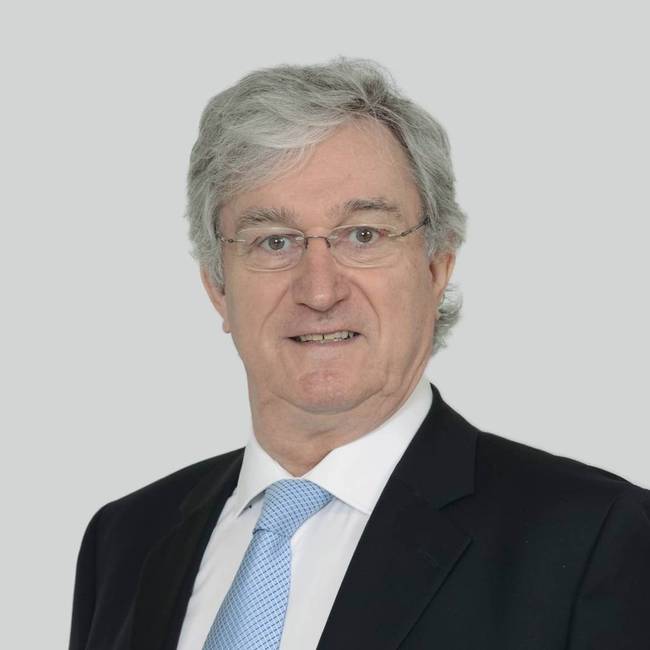
François Pétry
Professor Emeritus
Learn more
François Pétry is a pioneer in content analysis as applied to the study of political texts used as sources of scientific evidence for the ideological positioning of political actors, the way in which parties keep their promises, and the interaction between public opinion and government policy. Professor Pétry is also known for his contributions to knowledge translation through the creation of the Poltext project, whose objective is to archive the electoral platforms of political parties in Canada and the provinces and make them accessible in digital form for automated analysis. He is also the creator of the Polimeter, an online platform that tracks progress made toward fulfilling election promises, the results of which are widely quoted in the Canadian media.
Outstanding service to the community
Professor Pétry taught methods at the undergraduate and graduate levels before his retirement in 2015. During his successful career at Université Laval, he was head of his department from 2011 to 2015 and head of the integrated bachelor’s program in political economy from 2005 to 2008. He supervised the work of nearly 90 master’s and PhD students, particularly in the master’s of public affairs program, which he directed from 1994 to 2002. Professor Pétry was instrumental in establishing student exchange programs with about ten universities in Europe, Asia, and the U.S. Working with other researchers, he wrote three methods manuals, one of which sold 20,000 copies, contributing significantly to the methods training of several cohorts of social science students in Canada and other French-speaking countries. His leading role in student education was recognized with the creation of the eponymous Jenson-Pétry Award from Société québécoise de science politique, awarded annually to the author of the best political science master’s thesis.
Study of political science
Alone or in collaboration, Professor Pétry has published 11 books and more than 100 articles and book chapters. He has also delivered nearly 90 papers at conferences or as a guest speaker in North America and Europe. He has published articles in high-impact journals and is one of the most cited authors in his department according to Google Scholar. His collective works on the fulfillment of recent government promises have become definitive references for the study of public policy in Québec.
Very active in the university community, Professor Pétry was a member and then chair of the board of directors of Société québécoise de science politique and of the program committee for the annual conference of the Canadian Political Science Association. His scientific reputation has earned him numerous invitations to sit on evaluation juries of Québec research institutions. He was also appointed chair of the evaluation committee of the Canada Foundation for Innovation’s John R. Evans Leaders Fund and has been regularly invited to evaluate faculty promotion files at universities in Canada and France. Professor Pétry was a member and director of the Center for Public Policy Analysis. Marked by many noteworthy achievements, his career path has been nothing if not exceptional.
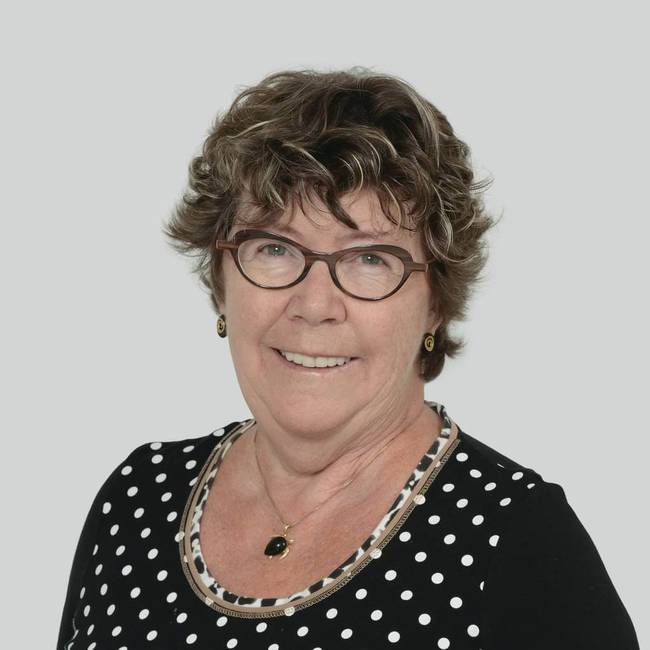
Carole Ratté
Professor Emerita
Learn more
Psychiatrist Carole Ratté graduated from the Royal College of Physicians and Surgeons of Canada (FRCP) in 1980. She became a clinical professor in the Department of Psychiatry and Neurosciences of Université Laval’s Faculty of Medicine in 1985, and was promoted to full professor in 2004. Until her retirement in 2015, she made exceptional contributions to the psychiatric education and training of students and professionals at Université Laval, particularly doctors and psychiatrists, but also students from other disciplines such as psychology, nutrition, and occupational therapy.
Demystifying eating disorders
During her career, Mrs. Ratté took a particular interest in eating disorders—ailments that are still emerging in psychiatry and medicine despite their profound medical and social importance. In 1999 she established an eating disorder intervention program (PITCA), the result of many years’ work. Supported by a specialized multidisciplinary team, this program run by the CHU de Québec – Université Laval is still helping young women with anorexia nervosa and bulimia nervosa today. The program’s intervention model is taught to residents, medical clerkship students, psychological interns, and nutrition and occupational therapy trainees.
Unparalleled commitment
Mrs. Ratté participated in a range of education and research activities on eating disorders, largely in collaboration with Université Laval’s Psychology Department. She also produced a training DVD on the subject for healthcare professionals. She is the author of 41 scientific papers, 20 publications, and six book chapters, and has co-supervised six theses and dissertations. From 2006 to 2014, Mrs. Ratté developed and coordinated a program to train psychiatric residents on helping colleagues in difficulty (ProFAC). During the same period, she also offered medical and surgical residents introductory courses in cross-curricular skills entitled Pour une relation adéquate enseignant-enseigné.
Awards and distinctions
Mrs. Ratté is recognized within her field for her contributions to teaching and research, which have greatly strengthened Université Laval’s reputation. She has received a number of awards over the course of her career, including the Award of Recognition for Excellence in Daily Clinical Practice from Association des médecins psychiatres du Québec in 2002 and the Certificate of Merit from the Canadian Association for Medical Education (CAME). In 2015, she was named a Woman of Distinction in healthcare by the YWCA and the Le Soleil – Radio-Canada laureat. Mrs. Ratté’s commitment, boldness, and dedication to her students clearly demonstrate her passion for her profession.

Gaétane Routhier
Professor Emerita
Learn more
Gaétane Routhier is a passionate teacher and academic administrator. For three decades, she was actively involved in teaching gastroenterology at Université Laval, both at the undergraduate level and at the postgraduate level in hospital settings. Many students benefited from her clinical expertise over the years. She holds a master’s degree in health science education and has developed innovative, high-quality teaching materials in the field. She was instrumental in improving the organization of medical education. Professor Routhier developed an advanced methodology used by her peers today and helped improve the health sciences professional development program. In 2005 she and some other clinician-teachers helped Université Laval establish the first specialized training program for gastroenterology. She also initiated and organized the master’s microprogram in university health sciences education. Finally, from 2009 to 2011, she completed the management training program at Université Laval.
Specialized medical training
Mrs. Routhier obtained her medical degree from Université de Sherbrooke in 1975. In 1979 she completed her residency in internal medicine and gastroenterology at McGill University. In 1980 she did a one-year postgraduate fellowship in hepatology at the University of London in England. She became an adjunct professor at Université Laval in 2002 and was promoted to associate professor in 2005 and full professor in 2009. In that position, she supervised many clerkship students and residents in family medicine, internal medicine, surgery, and gastroenterology. She held the position of vice dean of teaching and professional development in Université Laval’s Faculty of Medicine before retiring in 2015.
Experienced teacher and accomplished clinician
A member of the board of directors of the Canadian Association for Medical Education (CAME), Mrs. Routhier collaborated on national pedagogy-focused committees as well as a number of faculty and departmental committees. She also served as an expert on scientific committees for the organization of national and international conferences and symposia. A full-time clinical staff member at Centre hospitalier universitaire de Québec until 2010, she authored approximately 40 publications and presentations, mainly in medical education.
In 2007 Mrs. Routhier received the Certificate of Merit from the Canadian Association for Medical Education (CAME) for invaluable contributions to the field. This national award was presented to her by her peers in recognition of her skills and unflagging commitment. Mrs. Routhier is to be commended for her truly exceptional career.
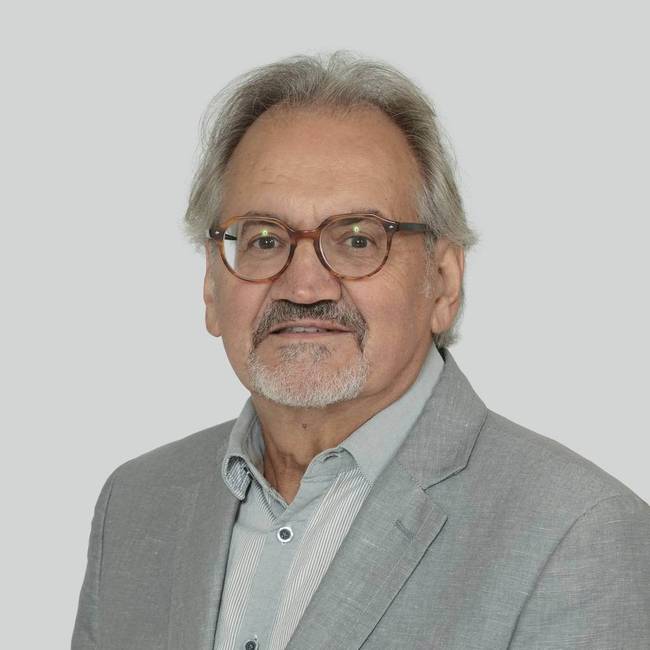
Daniel Turcotte
Professor Emeritus
Learn more
Daniel Turcotte has helped promote social work and practices developed in Québec in many foreign countries. His publications have become part of the foundation underlying the field of social work in Québec, Canada, and abroad.
University work
Professor Turcotte was actively involved in teaching and research after receiving tenure in 2001. He taught at the bachelor’s, master’s, and PhD levels in the areas of group intervention, research methodology, and qualitative methods, and delivered doctoral seminars. Scientifically-minded, he developed an innovative teaching method that has been of particular benefit to students pursuing a master’s degree in social work. He put his discipline and generosity to good use as a research director, supervising 11 PhD and 35 master’s students. His contributions to student education are also reflected in the publication of collective works, some of which have become required texts in social work courses delivered in French in Québec and abroad.
Sharing expertise
Professor Turcotte was a researcher or co-researcher on 29 research projects between 2001 and his retirement. He wrote more than 250 scientific articles and papers in Canada and internationally, particularly on the topic of youth protection. He also held various administrative positions, including scientific director of Institut universitaire du Centre jeunesse de Québec from 2000 to 2004 and director of the JEFAR research centre from 2002 to 2005. He has been an international expert member of a UNICEF committee on child protection, a member of the Université Laval program evaluation committee, and a member of evaluation committees for major granting agencies, research centres, and numerous scientific and professional journals. He has taken a public position on major issues facing the profession: the reform of the Youth Protection Act, the competency framework of Ordre des travailleurs sociaux et des thérapeutes conjugaux et familiaux du Québec, and the Act to amend the Professional Code.
In 2013 Professor Turcotte received the title of Social Worker Emeritus, a distinction granted by Ordre des travailleurs sociaux et des thérapeutes conjugaux et familiaux du Québec, in recognition of his expertise in the field of social work in Québec. His many accomplishments and unwavering commitment have gone a long way toward expanding the profile of the School of Social Work, the Faculty of Social Sciences, and Université Laval as a whole.
Emeritus statuses for years prior to 2017 are currently available in French only.